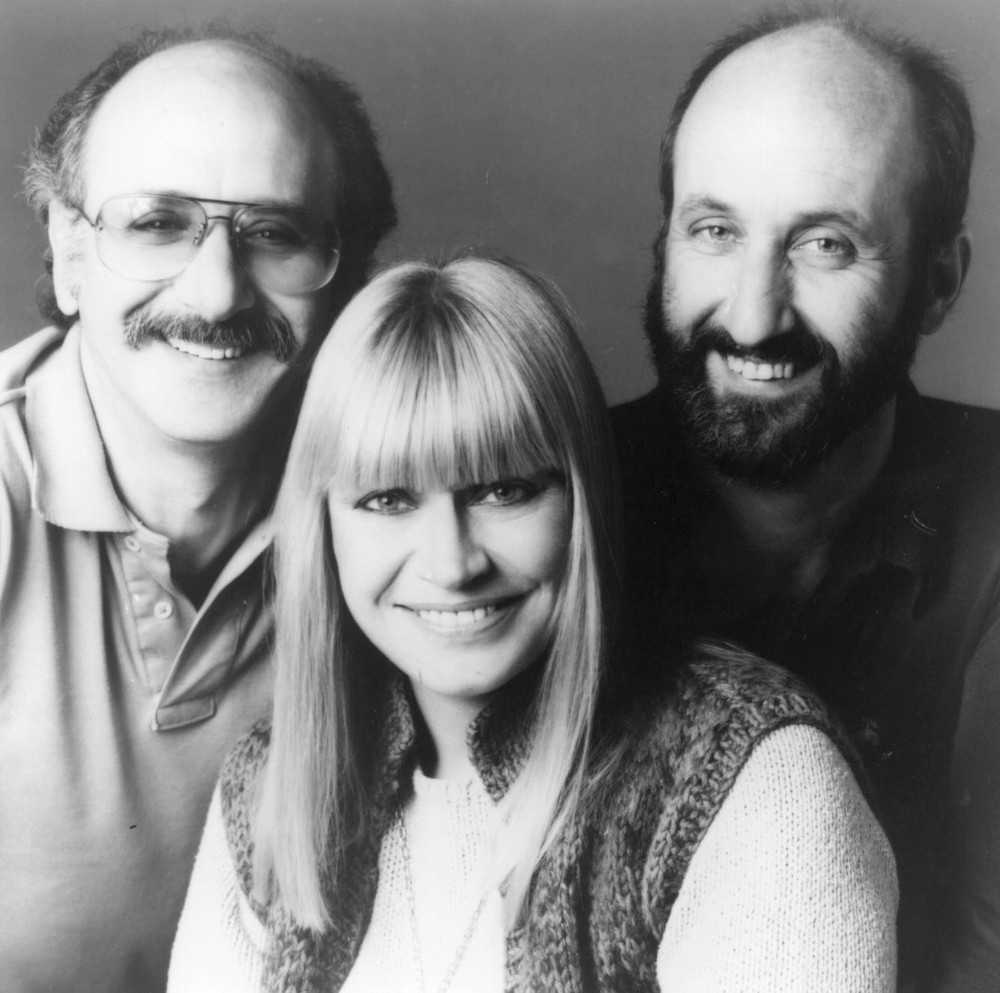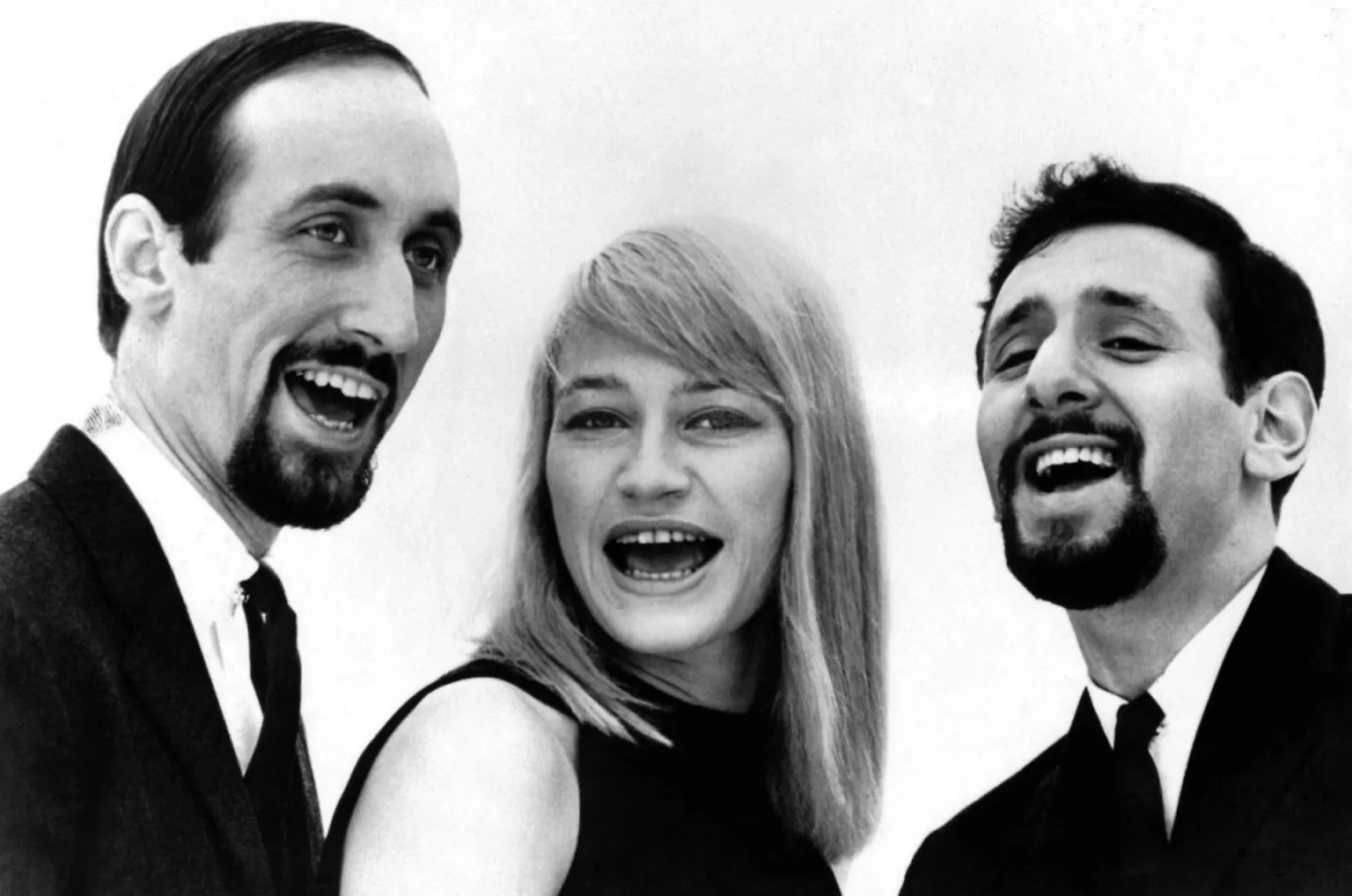The Folk Americana Roots Hall of Fame (FARHOF) announced its inaugural class of inductees in September 2023. The first induction ceremonies will take place in April although an exact date has not yet been announced. This is the third in a series of articles about FARHOF’s inaugural class.
The Duo or Group of Musicians category recognizes performers who’s initial impact on the genre was at least 25 years prior to the year of Induction.
Peter, Paul, & Mary:
During their fabled career, the trio of Peter, Paul, and Mary won five Grammys, produced 13 Top 40 hits – 6 of which became Top 10 hits – as well as eight gold albums and five platinum albums. Their journey began back in the late 1950s and early 1960s when each started to hone their craft in the New York City folk scene.
It was a time when energy The Weavers brought to the folk music scene in the post-World War II era began to fade. The fear of Communism, fueled in part by Senator Joe McCarthy’s witch-hunts, had forced folk music underground. It needed a new voice or voices to appeal to the next generation of folk enthusiasts.
The genre was not dead yet. Far from it. The Kingston Trio demonstrated folk music still had appeal when they emerged from San Francisco’s North Beach in 1957. However, the Trio was marketed for their commercial appeal. They differed in that respect from The Weavers, Wood Guthrie, Pete Seeger, and others who had become identified with the sociopolitical commentary that had been part and parcel of the 1950s revival. Albert Grossman believed the time was ripe for just such a folk revival.
Grossman auditioned singers to form a musical group emphasizing individual vocal personalities. He found it in Peter Yarrow, Noel Paul Stookey, and Mary Travers. Together the three reclaimed folk’s potency as a social, cultural and political force, opening the door for others to follow.
Their eponymous first album in 1962 – Peter, Paul, and Mary – yielded three singles beginning with “Lemon Tree” and followed by “If I Had A Hammer” and “500 Miles.” Pete Seeger had authored “If I Had A Hammer” as well as “Where Have All The Flowers Gone” which also appeared on the album.
The trio popularized both new and traditional folk songs. Peter Yarrow and Paul Stookey were solid songwriters but neither one was particularly prolific in their output. In addition to Pete Seeger, they recorded songs written by Bob Dylan (“Blowin’ In The Wind,” “The Times They Are A-Changin’,” and “Don’t Think Twice”), Gordon Lightfoot (“Early Morning Rain” and “For Lovin’ Me”), and John Denver (“Leavin’ On A Jet Plane”).

What was important to PP&M was not who wrote the song but the message it conveyed to the listener. “The songs we sing invite the participation of the listener, who is central to finding a way of creating the life of the song at that listening,” Yarrow once explained.
Stookey added, “Whether it’s your own material or somebody else’s material, it’s essential that you identify with it thoroughly. It’s like you want to archive it; you want to freeze it in time in terms of your perspective on it, then move on, because folk music is that volatile and comments not only on overall human concerns but also on the specifics.”
Peter, Paul, and Mary managed to achieve commercial success and still gave voice to issues of the day, such as civil rights, homelessness, and world hunger. “We’ve always been involved with issues that deal with the fundamental human rights of people, whether that means the right to political freedom or the right to breathe air that’s clean,” Travers pointed out.
In one case, the point of the song largely has been lost due to confusion on the part of some listeners. “Puff, The Magic Dragon” was written by 20-year old Yarrow and fellow student Leonard Lipton in 1959 while the two were at Cornell University. Many maintain the song is about the use of marijuana. Yarrow and Lipton have steadfastly denied the allegations, claiming the song is about nothing more than the loss of childhood innocence.
“Pirates and dragons, back then, were common interests in stories for boys,” Lipton has said. “The Puff story is really just a lot like Peter Pan.” Yarrow said he was too square then to write about drugs, as was everyone else. Drugs had not emerged yet, he claims.
“The innocence of a lost childhood,” Yarrow answered when once asked about the meaning of the song. “A dragon lives for forever but not so little girls and boys. At a certain point we have to grow up and put our toys away. It’s sad but it does have hope because the dragon becomes our hopes and dreams.”
PP&M were not above taking a humorous or tongue-in-cheek poke at the then current music scene. “I Dig Rock And Roll Music” is delivered in an upbeat manner while emphasizing the shortcomings of the commercial nature of the genre.
The trio decided to pursue solo careers in 1970 but came back together in 1978. They continued to tour together until Mary Travers’ death from leukemia in 2009. She perhaps best summed up their legacy in 2007 when she said, “The wonderful thing is that there is this incredible wealth of material, the result of 40 years of trying to find the best of our contemporary writers and the best of the traditional stuff… People 50 years from now will go back and listen to those tunes. This music is not going to disappear.”


